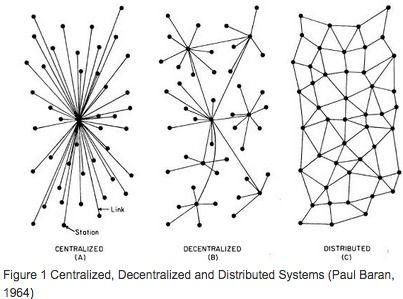Jacque Fresco’s futurist book, Designing the Future which serves as something of an introduction the revolutionary Venus Project, is a manifesto for redesigning civilization itself.
Jacque makes a call for a renewed modernism: “The application of scientific principles, for better or worse, accounts for every single advance that has improved people’s lives.” However, the real aim of the Venus Project is the abolition of money, which is described by Jacque as nothing but a source of debt, servitude and other injustice.
The book elaborates an anti-war and one-world vision that is very difficult to oppose. Indeed, its statements reflect some of the most enlightened views in the world today, with its staunch opposition to nationalism. Conflict, Fresco states, “is now totally unacceptable and dangerous because of war’s extreme human and environmental costs.” Even more appealing is Fresco’s encouragement that we treat the world as an “interrelated system with all its people as one family.” This amounts to an open-borders and anti-militarist position that I think reflects the aspirations of some of the most desperate and mistreated people on Earth and could lead to a profound reduction of hostility for all (p. 4–5).
Jacque writes that we need “new outlooks and approaches” and we should “direct the future”. This is a call for everyone to get involved – not just the elite. He challenges us to think how we might organize the world, if it were up to us. Personally, I do not feel qualified to organize the world, although I do think we can all say what we don’t think should happen. The solution, Jacque writes, must be “free of bias and nationalism”, which translates to an acknowledgment that Nineteenth Century nation-states are well beyond their best-before date.
In recognizing that nation-states are obsolete, Jacque warns we should still avoid generating “bad feelings” (p. 6–7). Jacque forewarns that what he is advocating is a “difficult project requiring input from many disciplines”. This recognition of the academic side of what he is advocating makes me bring in another respected theorist, Immanuel Wallerstein, whose work has focused on “reconceptualizing” the world to understand things like nation-states and vast global inequalities as production relations.
In a way, I am fully onboard with what Jacque is advocating already. If we could reconceptualize global society at a more popular level, rather than purely at an academic level, our task would be somewhat similar to the popularization of science attempted by such people as Carl Sagan. Nations, within the global social system, are only fleeting entities. If we could get people to accept that interpretation of society, we would accomplish what Jacque Fresco is talking about, but it is hard. I consider my own anti-statist essays as a contribution in that direction, and I would encourage other commentators to do their part, using whatever rhetoric or teaching methods they think best.
Jacque puts forward the idea that the scientific method should be rigorously applied to avert some of the biggest killers in modern life, e.g. car crashes (p. 15–17). This is a fairly convincing case, and one that I think has not been advocated yet by any other theorist, so Jacque deserves a lot of credit for it. The way to achieve it would probably involve integrating the local authorities with scientific advisory boards and ethics committees. This would have the added benefit of creating nice jobs for a lot of the students who tend to be thrown into positions that do not let them fulfil their true potential. One could argue that there are already plenty of science committees influencing governments, but it is not unreasonable to advocate there should be more, and at more local levels.
Matching what many intellectuals have pointed out, Jacque says “technology is moving forward but our societies are still based on concepts and methods devised centuries ago”, calling out the “obsolete values” that still shape many countries (the US not least of all) (p. 9). Another grievance mentioned is the corporate takeover of government, as protested against by the #Occupy movements. There are, today, “common threats that transcend national boundaries”, e.g. hunger, natural disasters of the kind that UN agencies are already attempting to combat (p. 10).
One of Jacque’s ideas resembles extropy, as articulated by Kevin Kelly. He states, “The history of civilization is the story of change from the simple to the more complex” (p. 13–14). Change is the “only constant”, the biggest enemy of which is the people in power who have trade advantages over others and strong reasons to maintain the status quo.
The best side of Jacque’s book is found in the compelling images of future architecture and design solutions that would reflect an economy geared towards human needs rather than profit. At least some of these principles will almost certainly become a reality in the future (p. 29–44, 48–52). However, Jacque’s ideas can be attacked from many angles, and these make it hard to accept the abolition of money that is really the core of his thesis:
“A much higher standard of living for everyone all over the world can be achieved when the entire Earth’s resources are connected, organized, monitored, and used efficiently for everyone’s benefit as a total global system – not just for a relatively small number of people.”
The problem with the above is that it is advocating globalization as it already exists, but neglecting a very fundamental element of that globalization: financial globalization. It is harder to believe that we can connect the entire world together solely in terms of resources than that we can connect it together financially. It is likely that going back to resource-based disparity rather than money disparity would lead to a more localized and therefore tribal existence with states becoming more possessive over natural resources. This would not be consistent with globalization as we have seen it thus far.
Jacque expresses the view that rather than laws and ethical people (as envisaged since as far back as Aristotle), we only need “a way of intelligently managing the Earth’s resources for everyone’s wellbeing” (p. 18–21). He is of the school of thought that “when we look at things scientifically, there is more than enough food and material goods on Earth to take care of all people’s needs – if managed correctly” (p. 19). This is also a view articulated by Ramez Naam in The Infinite Resource (2013), and that I have responded to in the past. The only problem is, it isn’t true. There are almost no distinguished scientists and scientific bodies who have stated that there are enough resources as we currently understand them to support the expanding population. There are even some prominent scientific bodies like the Club of Rome and various committees warning about our dwindling resources, constantly stating the exact opposite of what Jacque and Ramez have stated.
As much as I agree with what Jacque is trying to accomplish, it is patently false to say that looking “at things scientifically” is the same as using the scientific method, or that the scientific methods leads to redistributing resources to support everyone. Most scientists would disagree with what Jacque is saying. However, I am not arguing that they are right. I am arguing that we need to learn to tolerate how radical the idea of supporting everyone on the planet through the intelligent application of emerging technologies is, and how hazardous it could actually be. If we take the leap, we must wholeheartedly take any burdens and possible hazards into account as we do so. Humanity must know the risks, and not be persuaded to walk blithely towards something that still has so many unknowns.
Jacque lays out his case for abolishing all money. He gives 14 succinct grievances against the monetary economy that has been the norm for quite a few centuries. Most of these 14 points reiterate the same basic grievance that money enables people to be super-rich and others laden with debt, because… the rich people control it. However, in repeating these grievances against money and giving each of them more credit than they deserve, Jacque neglects the good points about money. It is still the only thing a lot of poor people have, and is the only way they can get their next meal.
It is not the unfair distribution of money, but the unfair distribution of resources, which keeps people and states poor or powerless. The rich are not rich because they have more money in their pockets, but because they physically control the resources that make money. They own keys to the factories and stockpiles. Rich states physically possess and control the world’s mineral wealth, and the labs where high-tech products are designed and tested. They use money merely as a way of throwing scraps to poor people where it would have been too inconvenient to give shares of their resources. So, if anything, money exists as a tool of remuneration to poor people, and would actually be a necessary component in any scheme to create more equality.
I, unlike Jacque, am what most people would call poor. If my money became worthless tomorrow, I would not be grateful. In fact, I would have few means of survival, and would wander the world begging for actual food and other resources from people and providers who are fortunate to possess a stockpile of resources. These providers in turn would wander the world begging for supplies, and other essentials they require to stay active. Therefore, the vacuum left by abolishing money would be more oppressive than any amount of debt, and it would also consume a lot more time and energy for everyone.
Not only would the abolition advocated by Jacque make life a lot more difficult for most poor people and businesses, but it would lead to the loss of a very basic source of dignity for the poor – the only medium with which they could actually buy and share resources. No matter how detrimental monetary greed can be, a poor man or business will always be grateful he can carry a wad of money around. He can’t pick up and carry a resource. One would hope that Jacque would at least try to overcome this terrible paradox of what is going to take the place of that money in a poor person’s hand, but he doesn’t. What is advocated instead is idealistic at best, and leaves one feeling hungry for the pizza that is probably never going to be delivered to your door by a drone if we really do get rid of money.
In fact, the form of remuneration posited by Jacque relies on “distribution centers” from which anyone can order an unlimited quantity of anything to their very door due to the unlimited capacity of the technology of the future (p. 76–78). If such a thing is inevitable from existing engineering trends, then we should be in awe of that technology, and not the Venus Project.
Something similar to the above occurs when Jacque states “Machines of the future are capable of self-replication and improvement, and can repair themselves and update their own circuitry.” Once again, this makes me ask, why then advocate Resource-Based Economy, if in the end we are always going to stand in awe of the machines and get unlimited free pizzas delivered to our doors anyway?
In a Resource-Based Economy, it is established there is no money, no credits, no debt, and no servitude. Here, “all of the world’s resources are held as the common heritage of all of Earth’s people” (p. 21). Unfortunately, the thing getting in the way of declaring our resources as a common heritage isn’t money, but the resources themselves. Just look how some states and firms have better resources than others, be it in the form of more high-tech facilities or more qualified personnel. One can’t just declare these people and things to be equally owned by all, or change their status in any significant way, by abolishing money, because they are still physically located in certain more advanced states (usually the US).
When it comes to how the RBE would manifest in practice, Jacque argues that all wealth and wellbeing should be based on immediate resources, such as water and fertile land. Unfortunately, this means areas with more resources would be better-off than those without, which takes us back to the problem already highlighted above.
Jacque says that increasing automation and peak oil are signs of “collapse” (p. 22), and that this collapse will provoke people to “lose confidence” in monetary economics. People will then turn to a global Resource-Based Economy as the solution. Unfortunately, this is not what usually happens in a collapse. In a collapse, people do not actually grasp at the most ideal solutions, never mind solutions prematurely based on future technologies. Just look at Iraq and Syria, where the failures of the state did not lead to a utopia but to a vacuum filled by pseudo-religious terrorist authorities.
The prediction that removing capitalistic competition by getting rid of money would result in the hippie-like outcome of peace and harmony (p. 69–76) is not convincing. If Christianity got one thing right, it is that humans are prone to sin. Even in a system with unlimited resources, there would be factionalism, security concerns, hoarding, vanity, greed, jealousy, power-mania, sex offenses, plain insanity and a plethora of other reasons for people to do evil. In sum, law enforcement and compliance would still be necessary.
Rethinking society is important, but the catalyst should be technology itself and the results spontaneous, rather than someone’s grand design. People should be in awe of the amazing things being made possible by nanotechnology and biotechnology, but they should be advocating that people invest in these technologies. Abundance is almost certainly going to rely on biotechnology, but there are many grievances against this field and promoting it might involve tolerating the directions taken by some large and rather controversial corporations.
Transhumanism differs from social design in that transhumanism is advocating the redesign of the human individual; a departure from our biological limits themselves as a way of escaping scarcity. Transhumanism is about maximizing the available choices and chances of survival of every human individual. We could go even further, and biologically re-engineer the world to access more resources, as I argued in my outlandish “terra-enhancement” article.
By Harry J. Bentham - More articles by Harry J. Bentham
Originally published at h+ Magazine on 19 August 2014







